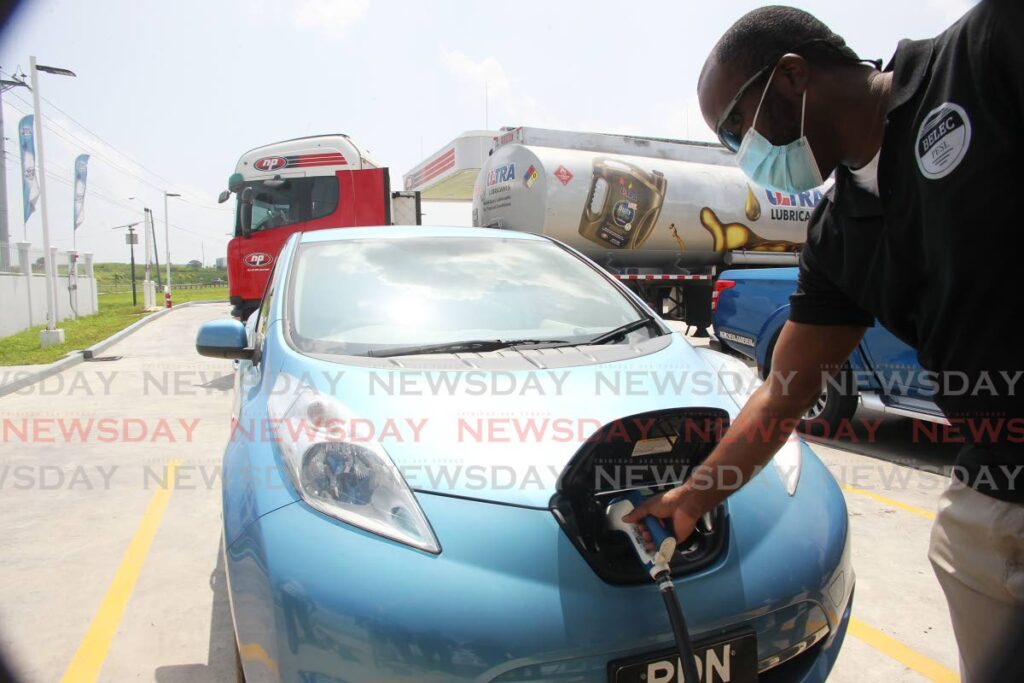CNG NGC head: Electric vehicles the future of transport

Trinidad and Tobago is headed towards a low carbon future, achieving e-mobility and contributing to the net zero emissions goal, says president of CNG NGC and vice president of sustainability at National Energy Curtis Mohammed.
Speaking at the Energy Chamber’s Caribbean Sustainable Energy Conference 2022 on Wednesday, the final day of the three-day conference, he addressed the issue of reducing roadside emissions, e-mobility and sustainable transport.
He said in TT there was about one million registered vehicles powered by gasoline and diesel, and despite a public transportation system there was an increasingly dominant private vehicle ownership.
Mohammed said while achieving low carbon emissions required alternative and cleaner forms of energy, it also a shift of all vehicles into electric, and a culture shift to include walking, cycling, carpooling and the use of public transport.
He explained that a study showed that for every 500 electric vehicles utilised about 1,074 tonnes of carbon dioxide can be saved per year using natural gas power generation, while 500 natural gas vehicles saved about 888 tonnes per year.
“Why is the gap not so large? It is because TT still has a significant proportion, while it is getting better, there is not efficient power generation. If that power was greener and if the plants were more efficient, then the gap would be bigger.”
“In the Caribbean, should we be powering our electric vehicles with fossil? We have almost 12 hours of sunshine daily. Maybe part of policy could be looking at incentives for renewables given that most people would be charging at home.”
CNG/NGC recently installed a level three DC fast charging system — powered by solar panels at its newest gas station in Preysal, which Mohammed said allows for faster a charging time.
He added that the fuel trends for reducing emissions nationally were improving and based on data from 2015 to present, with the introduction of CNG conversion there were 14,290 CNG vehicles on the market. The highest contributors were between 2019 and 2020 of 31 per cent and 23 per cent respectively.
“What caused this? Price increase in the cost of fuel, increase cost on duties and taxes on larger vehicles, consumers new purchasing pattern in hybrids — all of these aligned to cause a general reduction in fuel consumption in TT, and quite frankly it is making a difference in our carbon footprint as far as transportation is concerned.
“TT is heading towards a low carbon future by design, policy has been helping and alignment of local and international influences as far as vehicles go, and pricing of fuels, and having options. We need to ask ourselves how fast could we transition and this needs to be decided because it costs money.”
Mohammed added that NGC was also looking into exploring the use of landfill gas which can be captured and then converted and commercialised as fuels. In a partnership with SWMCOL, it said a memorandum of understanding was signed in 2021 to determine the infrastructure required for the initiative.


Comments
"CNG NGC head: Electric vehicles the future of transport"